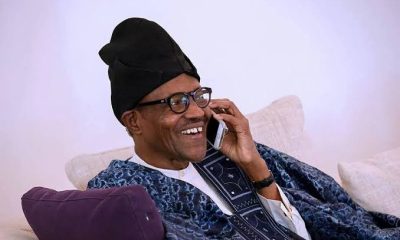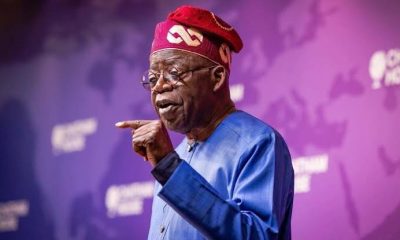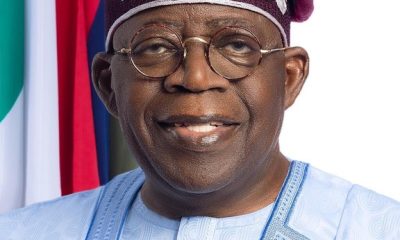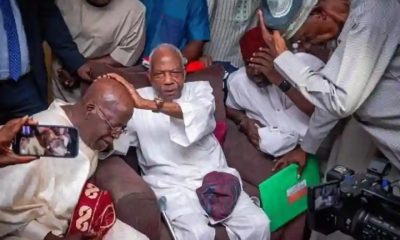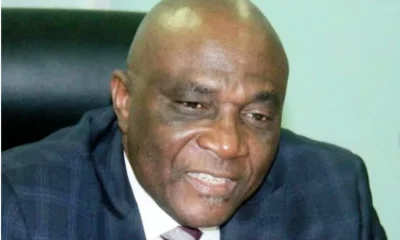Foreign
All there is about Prince Harry’s hacking claims, royal court case
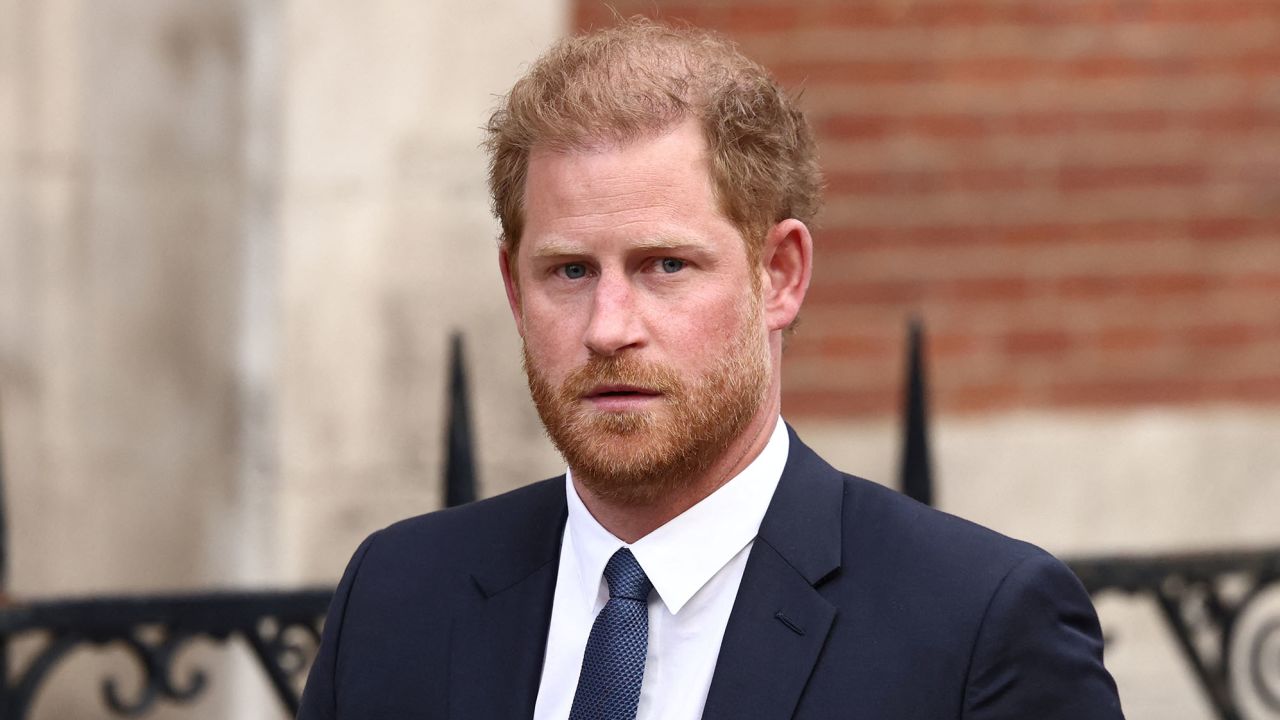
Prince Harry has been on this collision course for years – and finally he is going to be in a courtroom in person, eyeball to eyeball, in his battle against the tabloid press.
It promises to be an electrifying moment as he gives his evidence and faces questions this coming week from lawyers in London’s High Court about his allegations of phone hacking.
Prince Harry has said that changing the media landscape is his “life’s work” – and this gladiatorial courtroom encounter could be one of his own defining moments.
He has two of the key requirements for this legal battle: First, a single-minded determination to keep going without settling, and second, being rich enough to take the financial hit if he loses.
But giving evidence in person in this Mirror Group Newspapers hacking trial will have big risks for him. He will face the type of open, public and tough questioning that is a long way from any previous royal interview he has taken part in.
“This isn’t like taking questions from Oprah Winfrey in a celebrity interview,” says Tim Maltin, managing partner of Maltin PR, which specialises in high-profile reputation management.
“It is a hostile encounter with a highly-skilled cross-examiner armed with a battery of techniques to undermine your credibility.
“Giving evidence is daunting… and cross-examination is far more often traumatic than cathartic,” he says.
Prince Harry is likely to face detailed questioning about highly personal news stories which he claims were obtained through unlawful means – an allegation which the newspaper group disputes.
He could face gruelling questioning about stories relating to his relationships, his girlfriends, his mother Diana, the treatment of Meghan and his life growing up in the Royal Family.
There have already been challenges to the allegations of Prince Harry and his co-complainants. Lawyers for Mirror Group have said the evidence of hacking is “slim” in some cases and “utterly non-existent” in others.
Prince Harry’s own memoir, Spare, might be turned against him, with its accounts of drug taking and family tensions.
Historian and author Sir Anthony Seldon thinks Prince Harry is ill-advised to be appearing in court like this.
“Harry should never be there,” he says, arguing that the Royal Family should rise above such fights.
“Harry’s standing and trajectory will only be harmed, whatever the outcome. The public is losing sympathy with him and his constant protestations of victimhood,” says Sir Anthony.
“Harry and Meghan’s continuing hard luck stories only make William and Kate look much better in every way,” he adds.
But royal commentator Pauline Maclaran thinks taking a stand like this could boost Prince Harry’s popularity, particularly among young people.
Rather than being accused of being privileged or entitled, she says in this court case “he’ll be seen as the underdog, and that’s a good position to be seen in”.
“Many young people will see him as quite a heroic figure, fighting the establishment,” says Prof Maclaran, an academic at Royal Holloway, University of London.
“It could be good for Harry in the long run, even though the older generation will be tut-tutting,” she says.
As for the rest of the Royal Family, they will be “watching with an element of horror”, she says.
A previous hacking case this year against News Group Newspapers already produced the bombshell claim that Prince William had reached a private settlement with the newspaper publishers.
And Prof Maclaran expects more focus on the Royal Family’s dealings with the press in a way that could prove “uncomfortable” for Harry’s royal relatives.
The Newsnight interview with Prince Andrew in 2019 only lasted an hour – but it is still providing material for news four years later. So it is not surprising if there is royal anxiety about Prince Harry facing days of giving evidence.
There is going to be intense global interest in this court case. Harry and his wife Meghan provoke strong reactions among supporters and critics, and the eyes of the world will be watching.
Royal historian Ed Owens says the public will be fascinated by this combination of “courtroom drama and royal soap opera” and the prospect of a royal “pulling back the curtain” on the relationship between the tabloid press and the monarchy.
Not only does this case aim to expose evidence of hacking, but the stakes are made even higher by the argument that senior executives must also have known what was going on.
How will Harry react when his claims are challenged and put under the microscope? Will he start getting irritated? Will it be upsetting for him to talk about the press intrusion which by his own account has dogged him since childhood? How will he handle the pressure?
It is very unusual to see a royal appearance in a witness box.
The last senior royal to give evidence in this way was in the 19th Century, when Edward VII, as Prince of Wales, appeared in two cases – one in a dispute over card cheating and the other in a divorce case, in which the prince denied any “improper familiarity”.
In 2002, Princess Anne appeared in court to plead guilty after her dogs bit two children.
But those were very brief and different types of court appearances.
Part of the mystique of the monarchy is in saying little and answering less. Prince Harry is breaking the unspoken taboo about a royal going into the witness box to face what could be very embarrassing questions – but it is something that he clearly feels is worth the risk.
His grievance with the excesses of the press is deeply personal and emotional.
This is a court confrontation that you could almost trace directly back to the death of his mother Diana, in a car crash in Paris in 1997 when she was being pursued by paparazzi.
He has repeatedly connected that moment to his battle with the tabloid press.
It is his day of reckoning. His high noon in the High Court.
Foreign
3 teens arrested in Germany for allegedly plotting terror attack
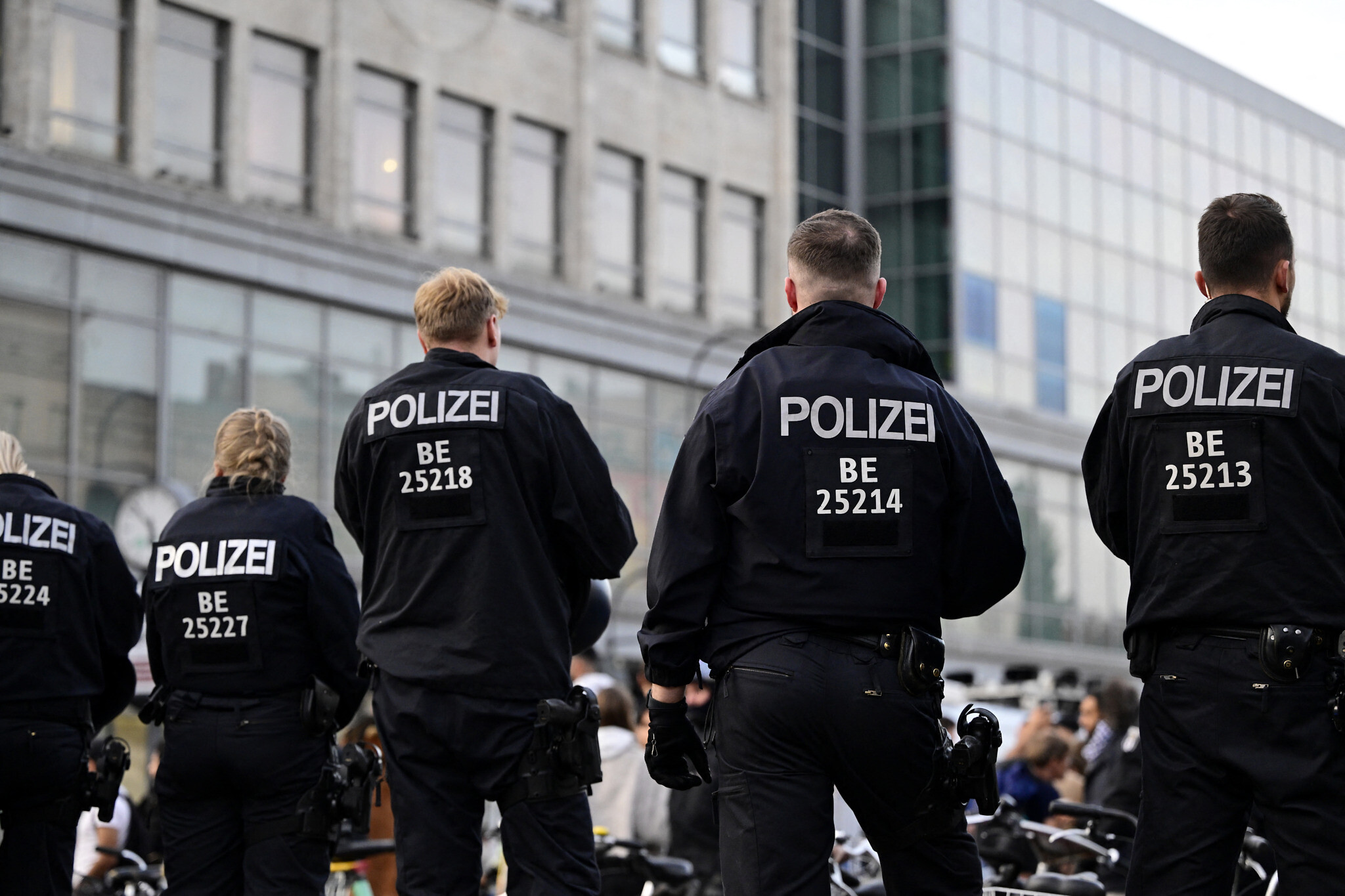
German authorities have arrested three teenagers aged 15 and 16 on suspicion of plotting a deadly Islamist terrorist attack in the western German state of North Rhine-Westphalia, prosecutors said on Friday.
The state’s Central Office for the Prosecution of Terrorism (ZenTer NRW) sought an arrest warrant for the teenagers over the Easter holiday.
They were suspected of plotting a terrorist attack in accordance with the aims and ideology of (extremist militia organisation) Islamic State.
The detained suspects are a 15-year-old girl from Dusseldorf, a 16-year-old girl from the Märkischer Kreis district and a 15-year-old boy from the Soest district, located about 100 kilometres to the east of Dusseldorf.
A fourth suspect has reportedly been identified in the south-western German state of Baden-Württemberg, and the local court there has issued an arrest warrant.
According to the investigators, the teenagers are accused of having agreed to commit murder and manslaughter.
This is in conjunction with the preparation of a serious act of violence endangering the state.
The presumption of innocence applied in all stages of the proceedings.
Security sources told newsmen that the young people had formed a chat group, but had not drawn up a concrete attack plan for a particular time and place.
However, sources said the cities of Dortmund, Dusseldorf and Cologne were discussed as targets, and attacks with knives and Molotov cocktails on people in churches or police officers in police stations had been considered.
The sources said authorities had also conducted searches as part of the investigation.
A machete and a dagger were seized in Dusseldorf, but no evidence of the construction of incendiary devices was discovered.
Sources said the father of the Dusseldorf suspect had already attracted attention from authorities in the past because he had allegedly collected donations for the Islamic State.
The investigators declined to reveal how the suspected terrorists were tracked down, but said that foreign intelligence agencies “did not play a role.”
Foreign
Putin Registers As Candidate For Russia’s Next Presidential Election
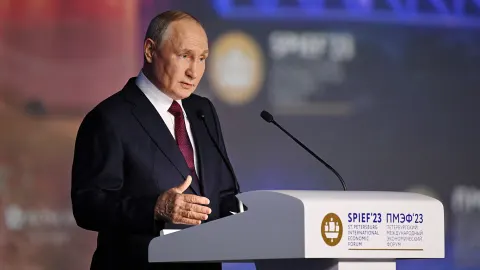
Russia on Monday officially recognised Vladimir Putin as a candidate for the presidential elections in March, a vote that he is all but certain to win.
The 71-year-old has led Russia since the turn of the century, winning four presidential ballots and briefly serving as prime minister in a system where opposition has become virtually non-existent.
The Central Election Commission said it had registered Putin, who nominated himself, as well as right-wing firebrand and Putin-loyalist Leonid Slutsky as candidates for the vote.
The election will be held over a three-day period from March 15 to 17, a move that Kremlin critics have argued makes guaranteeing transparency more difficult.
Following a controversial constitutional reform in 2020, Putin could stay in power until at least 2036.
Rights groups say that previous elections have been marred by irregularities and that independent observers are likely to be barred from monitoring the vote.
While Putin is not expected to face any real competition, liberal challenger Boris Nadezhdin has passed the threshold of signatures to be registered as a candidate.
However, it is still unclear if he will be allowed to run, and the Kremlin has said it does not consider him to be a serious rival.
-

 Business3 days ago
Business3 days agoSeplat Energy celebrates a decade of Dual Listing with Bell Ringing Ceremony at Nigerian Stock Exchange
-

 News3 days ago
News3 days agoBDCs now buying dollar at ₦980 — ABCON President
-

 Metro3 days ago
Metro3 days agoOsun Poly Student, Olanrewaju Olatona killed by hit-and-run one-way driver
-
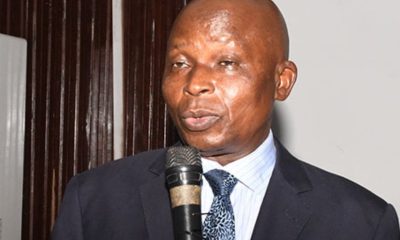
 Headline3 days ago
Headline3 days agoFagbemi warns against obstructing EFCC from performing its lawful duty
-

 News3 days ago
News3 days agoLASG’s maize palliative impactful, says poultry association chair
-

 News3 days ago
News3 days agoWoman killed while crossing road in Anambra

